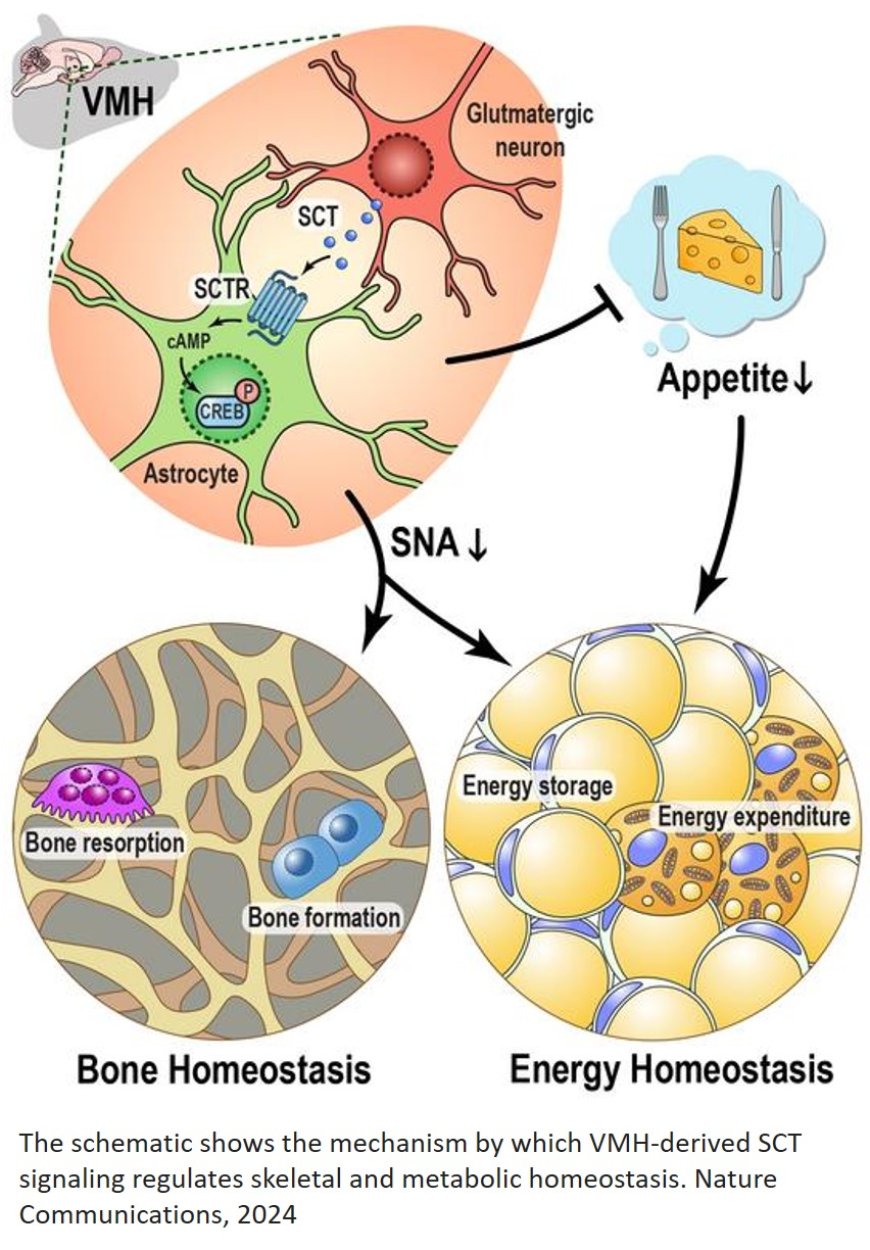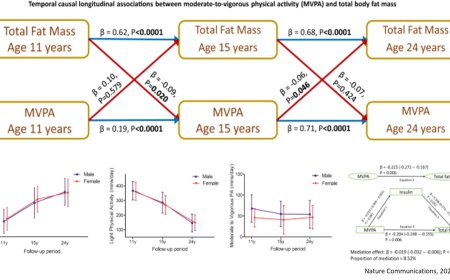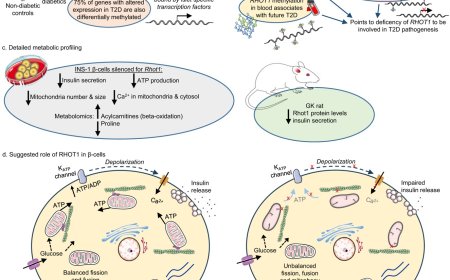Brain hormone regulate both energy metabolism and bone health

A team of researchers has made a significant breakthrough in understanding how energy metabolism and bone homeostasis are regulated in mice, which could lead to novel treatments for obesity and osteoporosis. The study has been published in the journal Nature Communications.
In their pioneering research, the team discover that the hormone secretin, found within the ventromedial hypothalamus (VMH) of the brain, plays a vital role in controlling both energy balance and bone density. This finding challenges the traditional view that secretin's primary function is in the digestive system, showcasing its importance in the central nervous system.
Using advanced genetic techniques, the researchers manipulated secretin signalling in mice and observed remarkable outcome. They found that disruptions to secretin pathways in the VMH led to increased appetite, metabolic dysfunctions, and significant bone density loss. Conversely, enhancing secretin signals in the same area increased bone mass without affecting body weight or appetite.
‘Our study opens new doors to treating metabolic and bone diseases. The ability to control appetite and bone density through the brain has significant implications for tackling obesity and osteoporosis,’ notes the principal investigator.
Looking forward, this research provides new ideas for developing innovative therapies targeting the brain to regulate body metabolism and bone health. The team plans to further investigate the applicability of these findings to human physiology and potential drug development.













